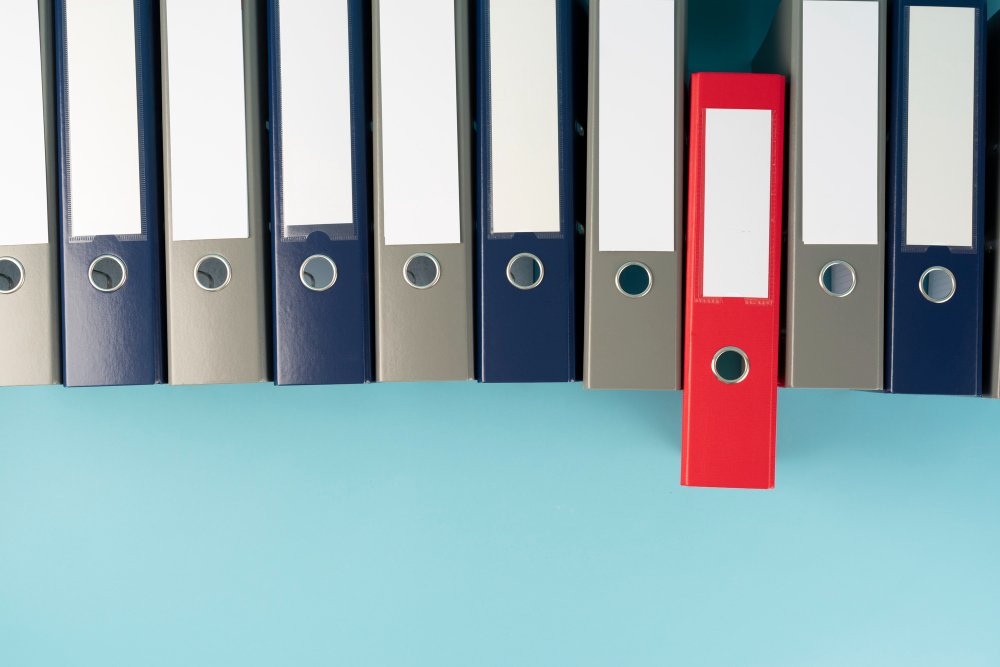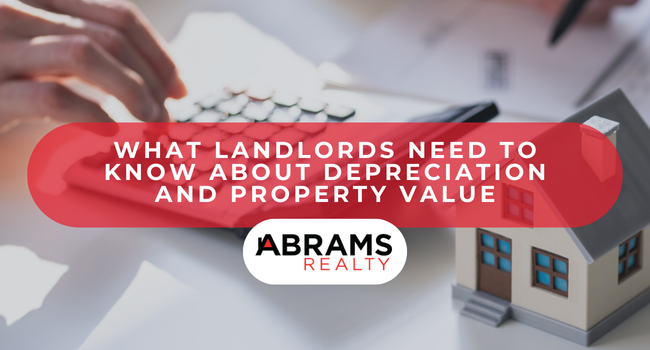Key Takeaways
Depreciation gives Virginia landlords valuable annual tax deductions, improving cash flow while rental properties may still appreciate in market value.
Understanding IRS rules—such as first-year conventions, repair vs. improvement classifications, and depreciation recapture at sale—is essential to avoid costly mistakes.
Abrams Realty helps landlords navigate depreciation, property management, and long-term planning so investors can maximize savings and protect property value.
Did you know that one of the largest tax benefits available to landlords in Virginia is depreciation?
Many property owners overlook this advantage, leaving thousands of dollars in savings on the table each year. At the same time, understanding how depreciation interacts with property value is essential for long-term investment planning.
To help local landlords make informed decisions, Abrams Realty put together this article to explain what depreciation means, how it affects property value, and why it matters when managing rental properties in Virginia.
What's Your Rental Worth?
Book a Free Rental Analysis Now!
From Deductions to Appreciation: Making Depreciation Work for Your Virginia Rental
Understanding Depreciation
Depreciation is the gradual reduction in the value of a building or improvements over time.
Land cannot be depreciated, but the structures and improvements on it can. For landlords, this is an accounting tool that spreads the cost of investment across several years while allowing annual deductions.

Residential rental property is usually depreciated over 27.5 years under federal tax rules.
For example, if you purchase a property for $300,000 and the land is valued at $60,000, the remaining $240,000 is depreciated. That equals about $8,727 per year. These deductions offset rental income and improve cash flow.
Eligibility and First-Year Rules
To qualify for depreciation:
You must own the property.
It must be used to produce income.
It must last more than one year.
It must be placed in service, meaning ready and available to rent.
Depreciation starts when the property is placed in service. The IRS uses the “mid-month convention,” meaning deductions start as if the property was available in the middle of that month.
For example, if you place a property in service on May 2, the IRS treats it as though it was available on May 15. This slightly reduces the first-year deduction compared to later years.
Landlords: Are you struggling to break even? Read our quick guide on how to increase your income without raising rent.
Depreciation Systems
Most Virginia landlords use the General Depreciation System (GDS), which spreads deductions evenly for 27.5 years.
The annual rate is about 3.636 percent.
In some cases, the Alternative Depreciation System (ADS) applies, which uses 30 years for residential property. ADS may be required if the property is used partly for business outside the U.S. or if certain tax elections are made.
Commercial rental property is depreciated over 39 years under GDS and 40 years under ADS. This means residential property generally provides faster deductions than commercial property.
Depreciation vs. Market Value
Depreciation for taxes does not equal changes in market value. While deductions reduce the property’s value on paper, the actual property may appreciate in the market. In growing areas like Virginia Beach or Norfolk, rental values often increase even while landlords report depreciation on taxes.

For example, a townhouse purchased for $250,000 may be depreciated by $80,000 after several years, yet its current market value could be $320,000 due to neighborhood development and housing demand. Landlords benefit from both annual deductions and long-term appreciation, but they must prepare for tax implications when selling.
Depreciation Recapture
When you sell a property, the IRS requires repayment of the depreciation deductions through a process called depreciation recapture.
The recaptured amount is taxed at up to 25 percent. For example, if you claimed $100,000 in depreciation over several years, you will pay taxes on that $100,000 at sale. Any additional gain may then be taxed as capital gains.
Some landlords use a 1031 exchange to defer these taxes by reinvesting in another property. This strategy has strict requirements but can be useful for long-term investors looking to keep growing their portfolio.
Have a Question?
Ask a Property Manager!
Repairs vs. Improvements
Repairs and improvements are treated differently.
Maintenance and repairs, such as fixing a leak or replacing a broken appliance, can usually be deducted in the year they are made. For instance, if you repaint an apartment between tenants, that cost is treated as a repair and deducted immediately.
Improvements, such as installing a new roof or adding central air conditioning, must be depreciated over time. If you remodel the kitchen with new cabinets and appliances, that cost is an improvement and must be added to the property’s basis and depreciated.
Understanding this difference is critical for maximizing deductions and staying compliant with tax rules.
Planning Ahead
Depreciation is valuable for cash flow, but it also creates future obligations through recapture.
Accurate records, proper classification of expenses, and awareness of the rules help landlords avoid costly mistakes. For those with multiple properties, keeping everything organized is essential to prevent missed deductions or tax issues.

Common mistakes include failing to separate land from building value, misclassifying repairs as improvements, or not starting depreciation in the correct month. Landlords can avoid these errors by keeping detailed receipts, tracking when properties are placed in service, and consulting professionals when needed.
Are you paying more than what you should be when it comes to your rental property? Let's look into it. Read our blog post on the Top Costs Landlords Don't Notice They're Accruing.
Local Market Trends
Virginia’s rental markets have remained strong due to population growth, military presence, and steady job markets.
Cities in Hampton Roads, Northern Virginia, and Richmond continue to see high demand for rentals. This means many properties are appreciating while still generating yearly depreciation deductions.
For example, a property purchased for $250,000 a decade ago in Virginia Beach may now be worth over $400,000, even though it has depreciated by more than $80,000 on paper.
This highlights why landlords must think about both tax savings now and potential tax obligations later.
The Bottomline
Depreciation is one of the most useful tools for Virginia landlords. It provides annual tax savings while properties often grow in market value.
Landlords must understand eligibility, first-year rules, the difference between repairs and improvements, and the impact of depreciation recapture when selling. Careful planning ensures that depreciation supports long-term wealth building instead of creating surprises.
Abrams Realty has extensive experience helping Virginia landlords manage properties and plan for tax considerations like depreciation.
Our team can guide you through management, recordkeeping, and long-term planning.
Contact Abrams Realty today to learn how we can help you maximize property value and grow your rental income with confidence.


